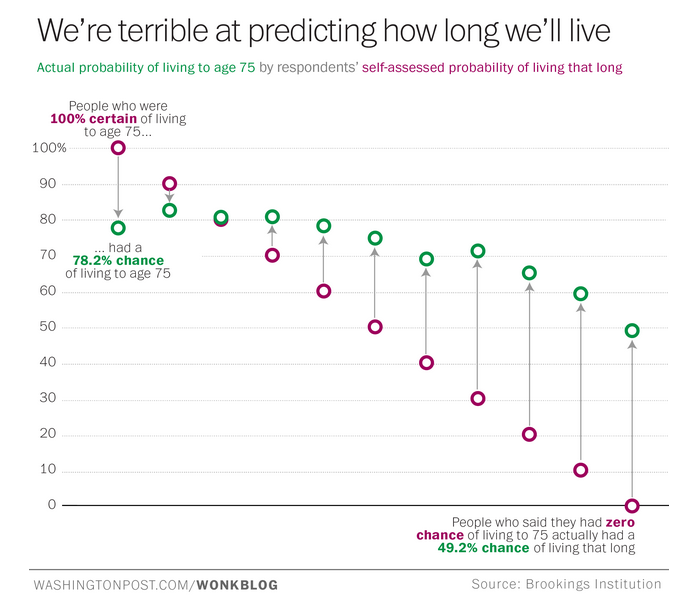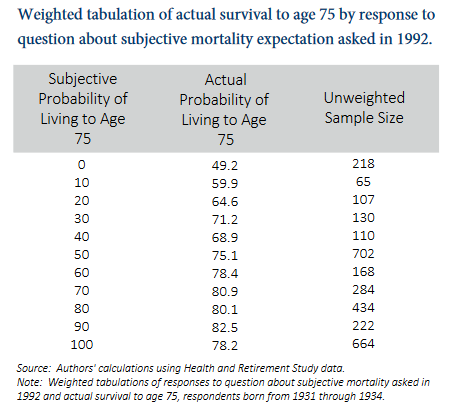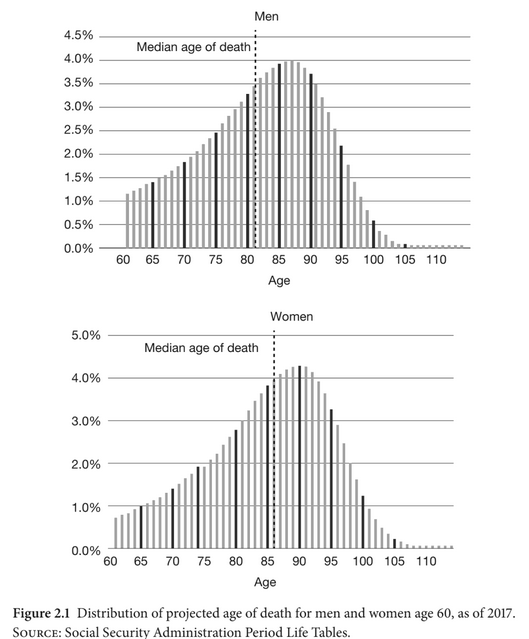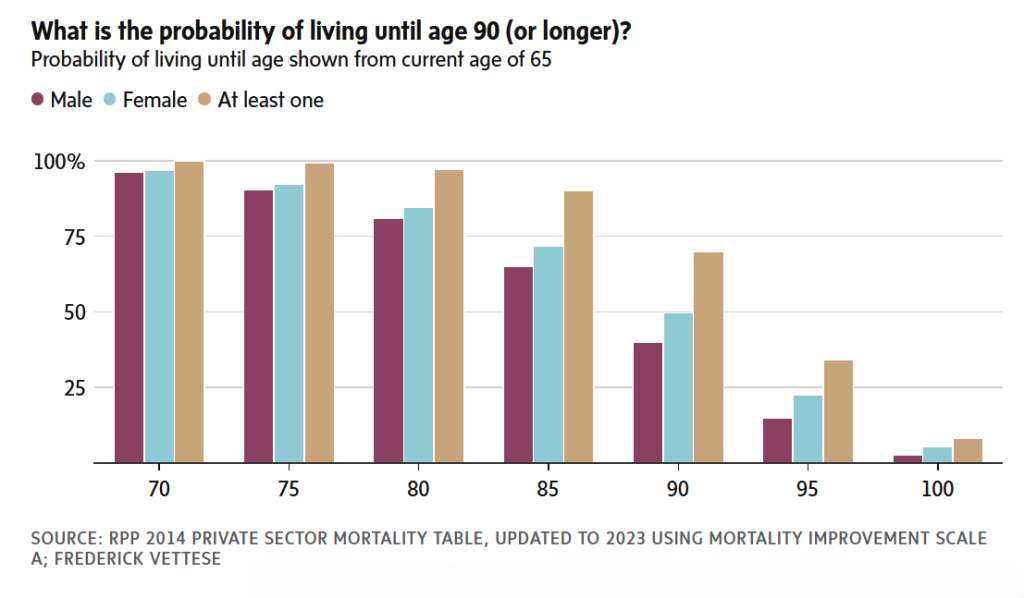In 1992, Americans ranging from age 51 to 61 were asked to estimate their chances of living to age 75. Researchers later checked to see how well the older members of that survey — those born from 1931 to 1934 — had done it predicting their chances of living to age 75. It turns out many people drastically underestimated their chances of living to age 75. As you can see from the graph and the table below, people who believed that they had a 0% chance of living to age 75 actually had a 49.2% chance of living to age 75. Although there were some exceptions, the overall trend was that people were more likely to underestimate their chances than to overestimate them.

From “You’ll probably live much longer than you think you will” by Christopher Ingraham on The Washington Post.

From “Better Financial Security in Retirement? Realizing the Promise of Longevity Annuities” by Katharine G. Abraham and Benjamin H. Harris.
Many people are living far longer than age 75. As you can see from these graphs, as of 2017 these are the distributions of projected ages of death for American men and women currently age 60 (or age 60 as of 2017). When we think of our life expectancy, we normally think in terms of an average or median for someone in our age and risk class. However as you can see from the graphs below, people typically do not go through their lives as statistical medians or statistical averages. On the one hand, many people are living significantly less long than their median life expectancy and on the other hand, many people are living far longer. Furthermore conventional retirement planning frequently starts at age 65 and only plans for a 30-year retirement. If someone retired at 65, that would mean that their funds might run out by the time they are 95. However, as we can see from the charts below, a statistically significant number of people are living significantly past age 95.

From The Retirement Challenge: What’s Wrong with America’s System and A Sensible Way to Fix It by Martin Neil Baily and Benjamin H. Harris.
So what is your probability of living until age 90 or longer if, for example, you are currently age 65? The data below is actually from Canada; however I believe Canada has similar life expectancy statistics to the United States, so this should still be fairly relevant to those of us in the United States. Anyway, many Canadians are living to age 90, 95, or even 100, and for a Canadian couple, the combined chance that at least one of them will live to age 90, 95, or 100 is quite significant. In the case of a Canadian couple who are both aged 65, there is a 34% chance that at least one of them will live to age 95 and an 8% chance that at least one of them will live to 100. If you are not taking this into account when planning for retirement or whatever you wish to do during the later years of your life, you’re not really planning for maintaining an income for what could be your lifespan.

From “What is your probability of living past 90? The answer could change your retirement planning” by Frederick Vettese in The Globe and Mail.
You may have noticed from the 2017 Social Security life expectancy projections that some people are living well past 100. As of June 16, 2024, the world record for the oldest person to ever live and have her age verified by the Guinness World Record records is Jean Calment, who died at 122 years and 164 days. However, that world record could change any time. Marcelino Abad Tolentino of Peru claims to have turned 124 on April 5th, 2024 and is currently trying to get verified by the Guinness World Records.

From “Oldest person ever: 122-year-old Jeanne Calment’s extraordinary life” by Sanj Atwa on Guiness World Records.

From “Marcelino Abad Tolentino” on Gerontology Wiki.
If you would like to see a Youtube video I made on this topic, here it is:
